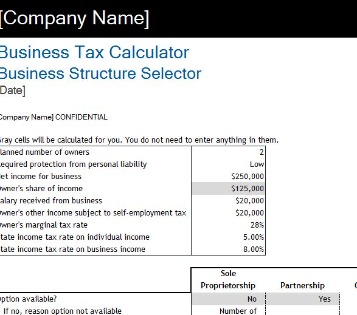Content
This makes it easier for investors to analyze and extract useful information from the company’s financial statements, including trend data over a period of time. GAAP helps govern the world of accounting according to general rules and guidelines. It attempts to standardize and regulate the definitions, assumptions, and methods used in accounting across all industries. GAAP covers such topics as revenue recognition, balance sheet classification, and materiality. Objectivity Principle – financial statements, accounting records, and financial information as a whole should be independent and free from bias. The financial statements are meant to convey the financial position of the company and not to persuade end users to take certain actions.
- Whichever you use, it’s important to understand the basics — even if you have small-business accounting software.
- The going concern assumption assumes a business will continue to operate in the foreseeable future.
- The financial statements are prepared regularly because it helps them in the decision-making process, and no firm can wait for long to know its results.
For example, let’s say you pay a commission to a salesperson for a sale that you record in March. However, businesses should recognize expenses sooner, when 5 Key Accounting Assumptions there’s even a reasonable possibility that they will be incurred. It’s better for cash flow purposes to overestimate your expenses rather than your income.
What are the accounting principles, assumptions, and concepts?
Therefore, a fact will be considered material if the accountant believes that the information can influence the decisions of a user of the financial statements. For example, the original cost of stationery is insignificant to the users of financial statements. Hence they are not included in the closing stock of the statements and are shown under expenses. Similarly, suppose the company has incurred an expense on the marketing of the firm or its products. In that case, it will be shown in the financial statements as it is a material fact for the users and can change their decisions. Adopting a single set of worldwide standards simplifies accounting procedures for international countries and provides investors and auditors with a cohesive view of finances.
The procedural part of accounting—recording transactions right through to creating financial statements—is a universal process. Businesses all around the world carry out this process as part of their normal operations. In carrying out these steps, the timing and rate at which transactions are recorded and subsequently reported in the financial statements are determined by the accepted accounting principles used by the company.
change is required
These principles are used in every step of the accounting process for the proper representation of the financial position of the business. Recording your assets when you purchase a product or service helps keep your business’s expenses orderly. It’s important to record the acquisition price of anything you spend money on and properly record depreciation for those assets. Though the preceding assumptions may appear obvious, they are easily violated, and can lead to the production of financial statements that are fundamentally unsound. Lizzette began her career at Ernst & Young, where she audited a diverse set of companies, primarily in consumer products and media and entertainment.
- Basically, that means a business should only record revenue at the point of sale when the buyer takes possession of the item or the service is complete.
- The issue of differing accounting principles is less of a concern in more mature markets.
- Today, the Financial Accounting Standards Board (FASB), an independent authority, continually monitors and updates GAAP.
- Companies may need to provide an estimation of projected gift card revenue and usage during a period based on past experience or industry standards.
- Approximation and judgment because of periodicity To provide periodic financial
information, accountants must often estimate expected uncollectible accounts (see Chapter 9) and the
useful lives of depreciable assets.
GAAP must always be followed by accountants and businesses when handling financial information. At no point can a company or financial team choose to ignore or modify any of the regulations. The segregation of expenditure between capital and revenue arises from this concept. That is, whether a particular item of expenditure will appear in the income/revenue statement (i.e., P & L A/c) or will appear in the Balance Sheet is to be determined by the accountants on the basis of this concept.
What is the Purpose of Accounting Principles?
For example, if a company’s management wants to compare the net profit of the current year with the previous year, it can do so only when the accounting policies followed by the company in both years are the same. For example, if a company has used the SLM depreciation method in the previous year and the WDV method of depreciation in the current year; it would not be able to compare the figures. This means these companies’ financial statements must follow all the GAAP principles and meet GAAP standards. Any external party looking at a company’s financial records will be able to see that the company is GAAP compliant, making it both easier to attract investors and to successfully pass external audits.
- While valuing assets, it should be assumed the business will continue to operate.
- The accrual accounting method aligns with this principle, and it records transactions related to revenue earnings as they occur, not when cash is collected.
- On the other hand, consolidated financial statements may be prepared for a group of entities that are economically commingled but are technically separate legal units.
- The SEC is an independent federal agency that is charged with protecting the interests of investors, regulating stock markets, and ensuring companies adhere to GAAP requirements.
These rules, often called the GAAP framework, maintain consistency in financial reporting from company to company across all industries. Historical Cost Principle – requires companies to record the purchase of goods, services, or capital assets at the price they paid for them. Assets are then remain on the balance sheet at their historical without being adjusted for fluctuations in market value. For instance, a large business
(such as General https://kelleysbookkeeping.com/ Motors Corporation) may consist of several separate corporations, each of which is a
separate legal entity. For reporting purposes, however, the corporations may be considered as one
business entity because they have a common ownership. Accounting assumptions are essential because they facilitate financial statement usage in terms of forecasting, performance comparison, enhanced reliability, and availability of structured financial data.
Accounting Principles Explained: How They Work, GAAP, IFRS
The IASB and the FASB have been working on the convergence of IFRS and GAAP since 2002. Due to the progress achieved in this partnership, the SEC, in 2007, removed the requirement for non-U.S. Companies registered in America to reconcile their financial reports with GAAP if their accounts already complied with IFRS. Companies trading on U.S. exchanges had to provide GAAP-compliant financial statements. The Financial Accounting Standards Board (FASB), an independent nonprofit organization, is responsible for establishing these accounting and financial reporting standards. The international alternative to GAAP is the International Financial Reporting Standards (IFRS), set by the International Accounting Standards Board (IASB).
Accounting principles are defined rules that ensure businesses follow the same financial practices. By using these guidelines to standardize how you track and interpret accounting data, you can accurately compare financials from different time periods and gain a clear understanding of your business’s health. The materiality concept suggests that an organization should focus on material facts only. In simple words, an organization should not waste its time on immaterial facts that do not help in determining its income for the period. In order to differentiate a fact as material or immaterial, one should consider its nature and the amount involved.
Therefore, assets and liabilities of a business are the business’s assets and liabilities, not the owner’s. Hence, the books of accounts include the accounting records from the point of view of the business instead of the owner. For example, the amount of 1,00,000 in ABC Ltd. by its owner Raj will be considered a liability to the business.
- The business entity concept applies to partnerships, companies, sole proprietorships, small enterprises, and large enterprises.
- Industry Practices Constraint – some industries have unique aspects about their business operation that don’t conform to traditional accounting standards.
- When an account produces a balance that is contrary to what the expected normal balance of that account is, this account has an abnormal balance.
- Financial analysis is one of the key aspects for assessing the company’s going concern status because it helps to understand its financial position deeply.
The business entity concept applies to partnerships, companies, sole proprietorships, small enterprises, and large enterprises. These are the basic ideas or assumptions under the theory base of accounting that provide certain working rules for the accounting activities of an organization. There are 13 important basic accounting concepts that are to be followed by companies to prepare true and fair financial statements.
Consistency
She earned a bachelor of science in finance and accounting from New York University. The Governmental Accounting Standards Board (GASB) estimates that about half of the states officially require local and county governments to adhere to GAAP. If there is any additional or relevant information needed to understand the financial reports, it must be fully disclosed in the notes, footnotes or description of the report. (ii) It fails to keep any record of such matters which cannot be expressed in terms of money— e.g., Human genius which may be highly productive, is not considered in accounting as there is no acceptable value in exchange. But intellectual property rights are accepted under international law and can be patented. Since there is some degree of continuity of every entity and no one can accurately predict the future of an entity due to the possibility of cessation of its life, it is more convenient to treat the same as a going concern.

Companies can still suffer from issues beyond the scope of GAAP depending on their size, business categorization, location, and global presence. According to accounting historian Stephen Zeff in The CPA Journal, GAAP terminology was first used in 1936 by the American Institute of Accountants (AIA). Federal endorsement of GAAP began with legislation like the Securities Act of 1933 and the Securities Exchange Act of 1934, laws enforced by the U.S.
Related topic: Artane

